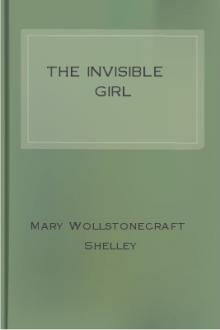author - "Mary Wollstonecraft Shelley"

ad formerly held in his affections, and cease from a cruelty that would destroy her. "For I may die," wrote the hapless girl, "but marry another--never!" That single word, indeed, had sufficed to betray her secret, had it not been already discovered; as it was, it gave increased fury to Sir Peter, as his sister triumphantly pointed it out to him, for it need hardly be said that while the ink of the address was yet wet, and the seal still warm, Rosina's letter was carried to

ng passions and affections which she often hid from the world under a placid appearance. Like Mathilda's, Mary's mother had died a few days after giving her birth. Like Mathilda she spent part of her girlhood in Scotland. Like Mathilda she met and loved a poet of "exceeding beauty," and--also like Mathilda--in that sad year she had treated him ill, having become "captious and unreasonable" in her sorrow. Mathilda's loneliness, grief, and remorse can be paralleled in Mary's

ad formerly held in his affections, and cease from a cruelty that would destroy her. "For I may die," wrote the hapless girl, "but marry another--never!" That single word, indeed, had sufficed to betray her secret, had it not been already discovered; as it was, it gave increased fury to Sir Peter, as his sister triumphantly pointed it out to him, for it need hardly be said that while the ink of the address was yet wet, and the seal still warm, Rosina's letter was carried to

ng passions and affections which she often hid from the world under a placid appearance. Like Mathilda's, Mary's mother had died a few days after giving her birth. Like Mathilda she spent part of her girlhood in Scotland. Like Mathilda she met and loved a poet of "exceeding beauty," and--also like Mathilda--in that sad year she had treated him ill, having become "captious and unreasonable" in her sorrow. Mathilda's loneliness, grief, and remorse can be paralleled in Mary's
